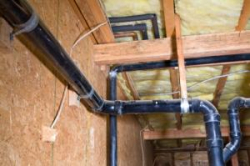Sewer FAQ Page
Sewer Frequently Asked Questions
1. What should I do if my sewer backs up?
Contact the City of West Linn Public Works Operations Division at 503-722-5500, between the hours of 7 a.m. - 3:30 p.m., Monday through Friday. After hours, call LOCOM non-emergency dispatch at 503-635-0238.
2. Where does my sewage go when it leaves my house or business?
The sewage leaves your home or business and flows through your service line to the main sewer pipe. From there it flows by gravity through the main line. The sewage continues moving through the system where it then flows through a pipe underneath the Willamette River and finally to the Tri-City Water Treatment Plant in Oregon City, which is operated by Water Environmental Services, a Department of Clackamas County.
3. What is a sanitary sewer pump station?
Pump stations are constructed in low areas that don't have gravity flow to the city's pipe system. The pump stations pump waste water from these low areas uphill to where they can flow by gravity again.
4. Are the Sanitary and Storm Sewer lines separated or combined?
Separated. West Linn's sanitary system and storm water system are separate systems.
5. What pollutants cannot be successfully treated?
Toxic chemicals such as pesticides, gasoline, antifreeze and solvents; and non-biodegradable substances, such as plastics. Contact Metro regional services for disposal of these types and all other household hazardous waste.
6. How is the sewage treated?
The sewage is treated at the Tri-City Sewage Pollution Control Plant. For information about the treatment process click here.
7. How much sewage does the City of West Linn Produce per day?
Approximately 2.3 million gallons.
8. Where is the treated water discharged? Is it safe to be in the water near there?
Treated water is discharged from the Tri-City Water Pollution Control Plant into the Willamette River. Yes, it is safe to be in the water near there. The effluent stream from the plant is mixed with, or diffused, into the river water. In most cases, the effluent stream from a waste water plant is cleaner than the receiving waters. For more info on the Tri-City Plant click here.

